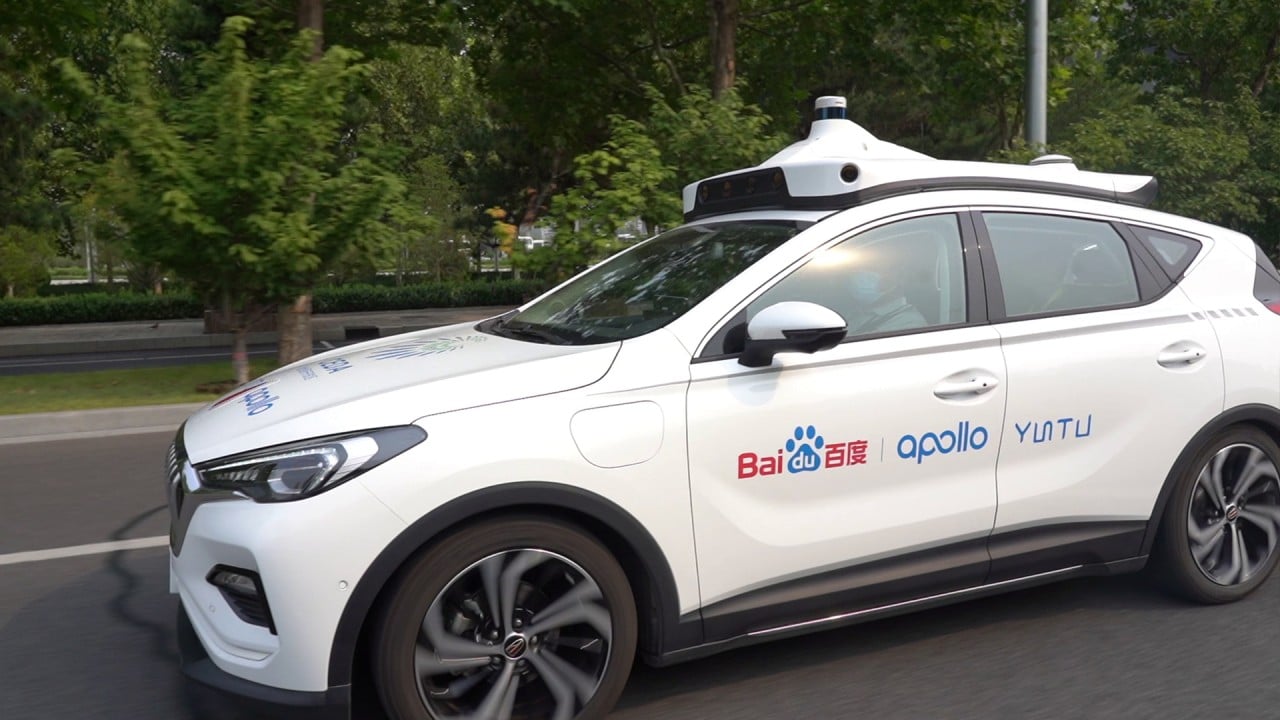
Chinese AI giant Baidu ups the ante on autonomous driving, plans to launch its first car with level 4 automation next year
- The Chinese AI giant’s electric vehicle being developed by its carmaking arm, Jidu Automotive, will have level 4 autonomous driving capability
- The as yet unnamed model will be unveiled at the Beijing car show in April
Analysts said that Baidu’s announcement was meant to signal to Chinese drivers that its vehicles will probably be the most advanced among all smart cars on the mainland next year.
“The Jidu vehicle has been designed to operate under the concepts of free movement, natural communication, and self-improvement,” Robin Li, Baidu’s co-founder and chief executive, said in a statement. “Human-car interaction and accurate identification of speech semantics enable the car to communicate naturally.”

Baidu is the first Chinese company showing an intention to launch a mass production car with L4 automation.
According to SAE International, a global standardisation body, L4 autonomous driving does not require human intervention in most circumstances, but the driver still has the option to manually override and take over control of the car.
L5, or full driving automation, does not need any human intervention under any circumstances.
At present, most autonomous driving technologies in use are either classified as L2 or L2+, under which sensors are used to give a vehicle “environment detection” capability, enabling it to decide whether to pass a slow-moving car. But the technology still requires human override and the driver must be alert and ready to take control.
“Autonomous driving is not a technology easy for any company to grasp, but Baidu is striking a confident note as it has given a clear time frame for the debut of its L4 autonomous car,” said Eric Han, a senior manager with Shanghai-based business advisory firm Suolei. “Seeing is believing. It is expected that millions of drivers will be eager to see and test the car.”
Baidu said a prototype of the new car will be unveiled at the Beijing Auto Show in April, with mass production and delivery to start in 2023.

Nvidia’s Drive Orin SoC chip made by the Santa Clara, California-based company will be used to power Jidu’s first production car, which has not yet been officially named.
Drive Orin SoC is designed for software-defined vehicles and it enables continuous upgrades through over-the-air software updates. It can process 254 trillion operations per second.
The chip is also used by NIO, a mainland smart EV start-up, to develop its self-driving technology.
Autonomous driving is a major draw for young Chinese motorists as they decide to buy EVs, rather than oil-guzzling internal combustion engine cars.
Baidu launched the world’s largest open-source autonomous driving platform, Apollo, in 2017 and it has been a pioneer in China in developing driverless cars.
Last January, the Beijing-based company set up Jidu Automotive with leading mainland carmaker Geely, taking a substantial step in exploring the potential of the world’s largest EV market.


